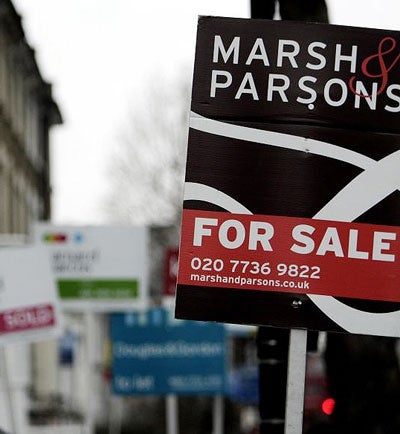Markets back MPC to cut rates in close call

The Bank of England's Monetary Policy Committee faces its toughest decision today in its decade-long existence, after a slew of bad news on the economy and from business.
Pressure on the MPC which will announce its decision on interest rates at noon to opt for a cut in rates of at least a quarter percentage point intensified throughout yesterday despite continuing concerns about inflationary pressures, especially from commodity prices.
However, despite a 2.8 per cent rise on the London stock market, as investors speculated on a rate cut, City economists insisted the decision was too close to call.
The housing market provided the latest ammunition for proponents of a rate cut, with Halifax revealing house prices fell for the third successive month in November, the longest period of weakness recorded by the bank since 1995. Halifax said house prices fell 1.1 per cent last month, reducing the annual rate of growth to 6.3 per cent, from 8.9 per cent in October. The figures are in line with those published by Nationwide Building Society, which last week said November was the worst month for real estate values for 12 years.
Housing market observers have also been unnerved by poor mortgage lending data from the Bank of England in recent days, while the Financial Services Authority has warned that 1.4 million borrowers coming off cheap fixed rates next year will "find it difficult, if not impossible, to refinance their mortgage on favourable terms".
Michael Saunders, of Citi European Economics, said the housing market woes would put further pressure on retailers, with surveys of consumer sentiment already indicating morale is running at 10-year lows.
"The correlation between house prices and consumer spending is about 80 per cent," he said. "Thus, housing weakness is likely to be accompanied, and followed, by a sharp slowdown in consumer spending."
In addition to poor housing market data, the CBI and the Chartered Institute of Purchasing and Supply (CIPS) reported that activity in the service sector, which accounts for three-quarters of the UK economy, moderated significantly in November.
The CBI/Grant Thornton Service Sector survey warned consumer spending in those service industries most affected, such as cinemas, gyms and hairdressers, fell this quarter at the fastest rate in the survey's 10-year history. The survey put activity overall at its lowest level since 2003.
"Purchasing managers reported a fall in optimism for future activity at its lowest level since the start of the Iraq war," said Roy Ayliffe, director of professional practice at CIPS. "On pricing, rising food, fuel and wage costs have put pressure on input costs and service providers have had to raise their charges in order to protect profit margins."
However, the threat of inflation from higher commodity prices makes the MPC's task unusually tricky. A combination of slow growth and high inflation has not been seen since the early 1980s, but analysts warned yesterday that food inflation in shops was now at record levels.
The British Retail Consortium said that in November food price inflation accelerated from 3.7 per cent in October to reach a new high of 4.3 per cent.
Such "high-profile" inflation at the supermarket checkout will reinforce inflationary expectations on the part of consumers, which feeds into wage bargaining. The retail price index, the measure of inflation most often used in pay bargaining, remains at around 4 per cent, much higher than the CPI, used by the Bank to target inflation, which is around its target level of 2 per cent.
Inflation expectations are closely monitored by the MPC, and have been heightened by rises in the cost of fuel on garage forecourts to 1 a litre, as well as higher gas and electricity bills, more expensive mortgage repayments and rail fare rises.
Currency investors backed the view of stock market traders, with sterling falling sharply on expectations of rate cuts. A weaker pound will add to inflationary pressure.
The Bank's base rate has stood at 5.75 per cent since July. Last month, only two of the nine members of the MPC voted for a cut the perennial "dove" David Blanchflower, an external economist, and the Bank's deputy governor for financial stability, Sir John Gieve. Since then there has been renewed pressure in the credit markets, pushing short-term inter-bank rates up to levels not seen since the height of the credit squeeze in September. This disconnect between official rates and market rates is making the Bank's job even more demanding.
Subscribe to Independent Premium to bookmark this article
Want to bookmark your favourite articles and stories to read or reference later? Start your Independent Premium subscription today.

Join our commenting forum
Join thought-provoking conversations, follow other Independent readers and see their replies